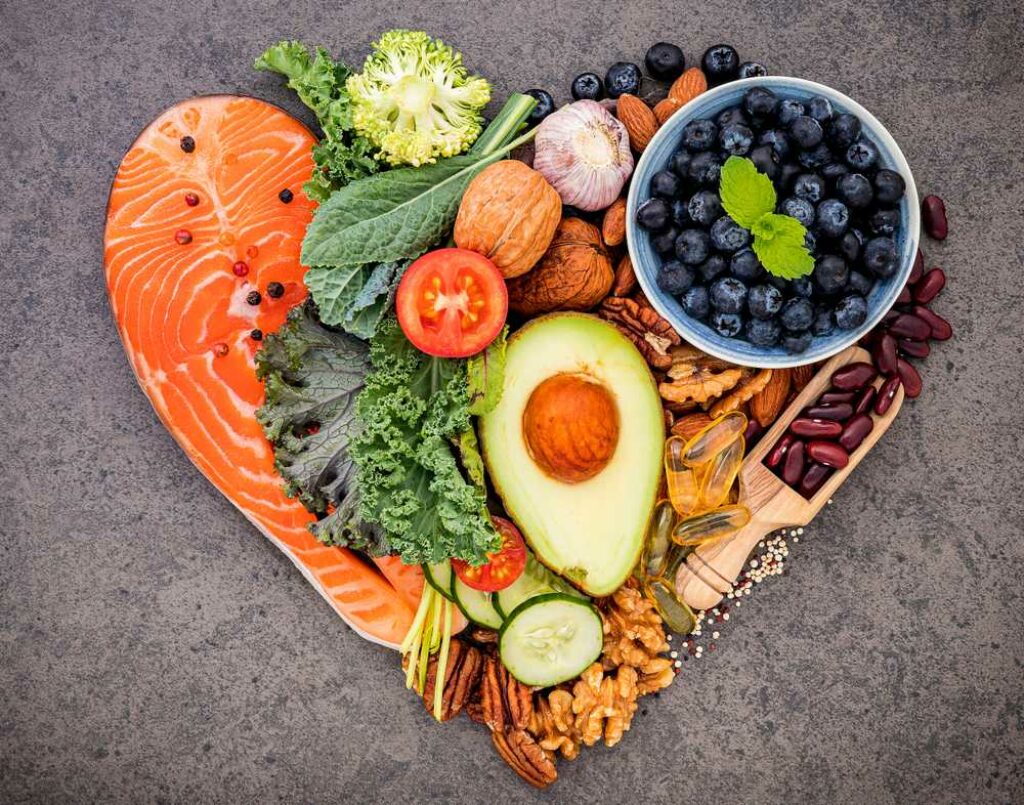
Best Foods For Heart Health
In school, everyone is taught that the body cannot survive without a strong and fully functioning heart. The heart is quite an extraordinary and incredible organ – it beats, pumps and circulates blood via the arteries on its own, continuously and tirelessly, throughout our lifetimes.
Related Topics (Sponsored Ads):
However, not everyone knows or understands how to take care of it and nurture it. Although it is a powerful vital organ, it is also fragile. Just like any other part of the body, excessive neglect and damage caused by unhealthy foods, nutritional deficiencies, poor lifestyle choices and habits will quickly reduce the heart’s ability to work well. Our hearts also give essential life giving nutrients and energy to the entire body to help with growth, optimal function and healing. Eventually, prolonged damage caused by drinking alcohol, smoking, bad fats, clogged arteries, too much salt and obesity can become too much for your heart to handle, leading to a potentially fatal heart attack. Our hearts do so much for us every second of every day. Isn’t it time we give it some love in return?
So go ahead and grab a pen and shopping list. Listed below are some of the very best and healthiest foods that your heart will thank you for.

Salmon And Other Fatty Fish
Salmon and other fatty fish, such as mackerel, sardines and tuna, are bursting with essential omega-3 fatty acids, which have been studied extensively for their heart-health benefits. Sometimes referred to as a “super nutrient”, omega-3 fatty acids from fatty fish have a very important and protective role – it reduces the risk of developing heart disease, CVD events and arrhythmias.
For example, one study concluded that eating fatty fish or taking fish oil supplements over the long term is strongly linked to lower levels of LDL (bad) cholesterol, blood triglycerides, fasting blood sugar, and systolic blood pressure. Plus, It has also shown to lower the risk of cardiovascular disease and depression, along with increasing your overall lifespan.
Alternatively, if you follow a vegetarian or vegan diet, you can get your daily dose of omega-3 from krill oil, flaxseed, chia seeds or algal oil instead.
Almonds
Almonds, especially when raw, are supremely nutrient-dense, boasting a wide variety of vitamins and minerals that are crucial to heart health. They’re also an excellent source of vital heart-healthy monounsaturated fats and fiber that can help protect against heart disease.
Research indicates that eating almonds can have a powerful effect on your good cholesterol levels too, reducing plaque buildup and keeping your arteries open and clear. One study involving 48 people with high cholesterol showed that eating 1.5 ounces (43 grams) of almonds daily for 6 weeks reduced belly fat and levels of LDL cholesterol, two risk factors for heart disease.
Avocados
Avocados are another fantastic source of heart-healthy monounsaturated fats, which have been linked to reduced levels of cholesterol and a lower risk of heart disease. For instance, one small study focused on the effects of three LDL cholesterol-lowering diets in 45 people who were overweight or obese, with one of the test groups consuming one avocado per day. The avocado test group experienced an increase in HDL (good) cholesterol and reductions in LDL cholesterol. The lipid-lowering and cardioprotective effects of avocado have been demonstrated in several studies as well.
Better yet, avocados are also rich in potassium, a nutrient that’s essential to heart health. In fact, just one avocado supplies around 975 milligrams (28%) of the potassium that you need in a day. Getting at least 4.7 grams of potassium per day can decrease blood pressure by an average of 8.0/4.1 mmHg, which is associated with a 15% lower risk of stroke.
Spinach And Other Dark Leafy Greens
Leafy green vegetables like spinach, kale, and collard greens are well known for their plethora of vitamins, minerals, and antioxidants. In particular, they’re a superb source of vitamin K, which helps protect your arteries. They’re also full of dietary nitrates, which have been shown to reduce blood pressure, decrease arterial stiffness, and enhance the function of cells lining the blood vessels.
Some studies have also found a link between increasing your daily intake of leafy green vegetables and a lower risk of heart disease. One analysis of eight studies strongly suggests that increasing leafy green vegetable intake results in a 16% lower incidence of heart disease. Another major study involving 29,689 women showed that a high intake of leafy green vegetables is linked to a significantly lower risk of coronary heart disease.
Berries
Strawberries, blueberries, blackberries, and raspberries are jam-packed with important nutrients that play a central role in heart health. Berries are also rich in antioxidants like anthocyanins, which help prevent oxidative stress and inflammation that are major culprits in the development of heart disease.
Studies show that eating lots of berries can reduce several risk factors for heart disease. For example, one study in 33 adults with obesity showed that consuming strawberries at two and a half servings for 4 weeks significantly improved insulin resistance and reduced LDL cholesterol.
Another study found that eating blueberries in particular improved the function of cells that line the blood vessels, which helps regulate blood pressure. Additionally, an analysis of 22 studies showed that eating berries can reduce systolic blood pressure, body mass index, and certain markers of inflammation.
Green Tea
Green tea has long been associated with a number of great health benefits, from increased fat burning to improved insulin sensitivity. It’s also brimming with the antioxidants polyphenols and catechins which can prevent cell damage, reduce inflammation, and promote heart health. One study showed that green tea extract effectively increased leptin and reduced LDL cholesterol in obese women after 6 weeks of treatment. A series of other studies found that taking green tea extract for 3 months reduced blood pressure, triglycerides and decreased LDL cholesterol.




